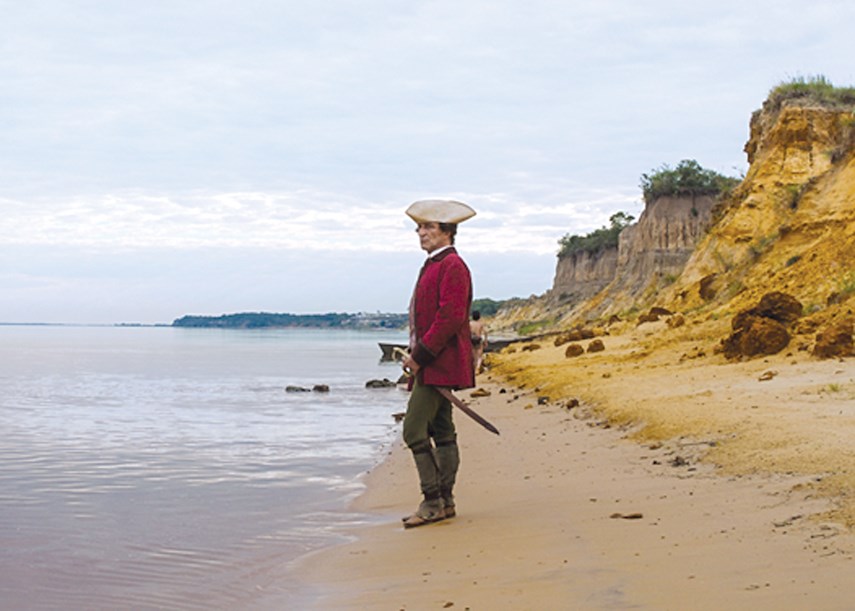The Cinematheque opens a mid-career retrospective of the brilliant Argentine auteur Lucrecia Martel tonight with the Vancouver premiere of her latest work, Zama, about an 18th century Spanish bureaucrat stuck on the far edge of the civilized world waiting to be transferred elsewhere.
David Fear’s rave review in Rolling Stone last month gives viewers an idea of what’s in store for them:
“Located in the dead center of a Venn diagram encompassing sumptuous costume drama, social commentary and pure cinema, Lucrecia Martel’s extraordinary new film Zama establishes a pattern from the get-go . . . . It’s the sort of immersive cultural transmission that reminds you just how powerful and transportive this medium can be – one of those rarities that can momentarily jolt you out of your ways of seeing things. Poetic is a word that gets thrown around willy-nilly, but it fits perfectly here. So does woozy. It feels less like a film than a high fever, burning slow but hot in order to incinerate a virus . . . . The third act then proceeds to go into full surreality-bites mode, staking its own claim at the corner of Herzog St. and Buñuel Ave.”
In Sight and Sound’s review of Zama, which uses a Herzog-associated film title, Burden of Dreams, as its headline, Maria Delgado discusses the importance of sound in Martel’s work:
"The sound design shapes the very texture of the film. From the opening sequence, where the intrusive hum of cicadas melds with rippling water and the noise of children playing, sound evokes the world – the slaves, the animals and insects – that the title protagonist tries to shut out. Working with regular sound designer Guido Berenblum, Martel opts for non-diegetic sound. Her deployment of the easy listening hit Maria Elena, recorded in 1958 by the indigenous Brazilian guitar duo Los Indios Tabajaras, may appear anachronistic, but it both binds Zama to the decade of di Benedetto’s novel and reinforces the film’s intersecting conceits and influences. These range from the quest focus of the western to the undermining of certainty that Martel so admires in horror films. The result is a beguiling cinematic journey through identity formation in Latin America, where the legacy of colonialism and its discontents runs deep."
Los Indios Tabajaras - Maria Elena (1958)
In mubi.com’s Notebook, Darren Hughes and Daniel Kasman posted a fascinating interview with Lucrecia Martel about the making of Zama. The Man With No Hands: Lucrecia Martel and Zama.
I Feel You: The Films of Lucrecia Martel begins tonight with a reception at 6 p.m. followed by a screening of Zama, introduced by Christine Evans. The series (June 1-5 and 8-10) will include all four of Martel’s features plus Dead King, a short film from 1995.



